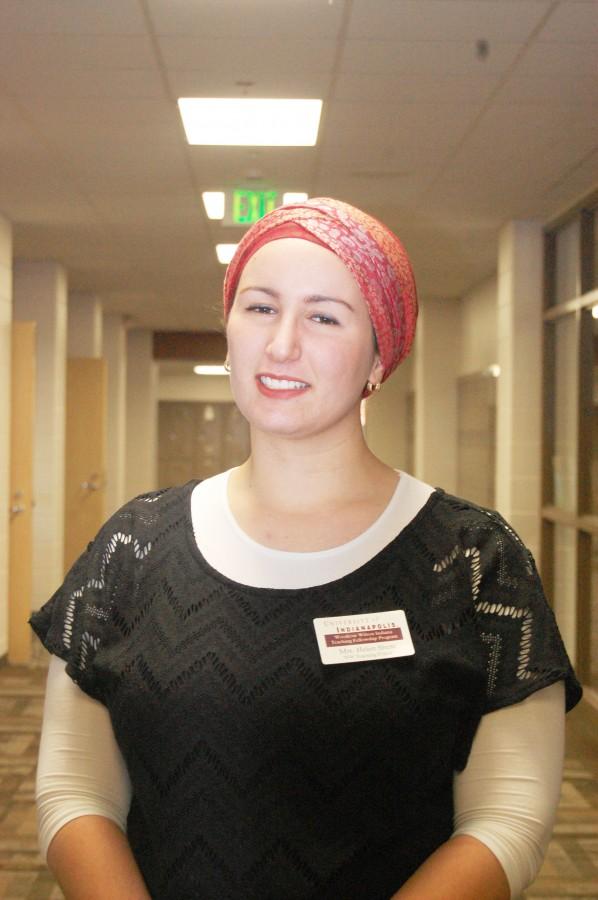Tenets govern social life
Student teacher Mrs. Helen Shere
November 10, 2015
Considering herself to be modest, this SHS student teacher has some decisions to make when arriving at school. She asks herself everyday whether or not she will wear a traditional headscarf or a wig.
Simplicities such as not being able to eat school lunch are challenges she faces and overcomes.
“My religion affects every aspect of my life,” said student teacher Mrs. Helen Shere an SHS. “It affects what I eat, my daily routine, what I do with my spare time, what I wear and how I treat other people.”
Shere practices Orthodox Judaism. While she did grow up Jewish, she was not observant of Jewish law. It was not until about nine years ago that she and a group of friends became interested in learning more about Judaism. Her interest later developed into attending a youth group. It was in high school that she transitioned and became an Orthodox Jew.
Her life is governed by the Jewish law, halakha. This law helps guide her life because the rules of halakha apply to her in many different aspects such as eating kosher and upholding certain standards of modesty, like wearing a headscarf.
As a lay, or a person in a congregation, she is expected to be as knowledgeable on these laws as her Rabbi . While halakha is a major part of the religion, there are other important aspects as well.
“The main tenet (principle) is really to treat your fellow man as you would like to be treated,” Shere said.
Another principle followed is Kiddush Hashem which is the idea of bringing glory to their god by being a good person and modeling that through kindness and good works.
Both she and her husband Mr. Nathaniel Shere practice the religion together. While their busy schedules may not always coincide, Nathaniel Shere says that time spent together is guaranteed during the Sabbath that occurs Friday evening through Saturday evening. During the Sabbath, a full 24-hours without electricity provides time to spend amongst family, friends or themselves instead of working.
“In today’s fast-paced world, we feel that having these foundational stones already in place is crucial to maintaining a strong relationship,” Nathaniel Shere emailed to the Journal.



